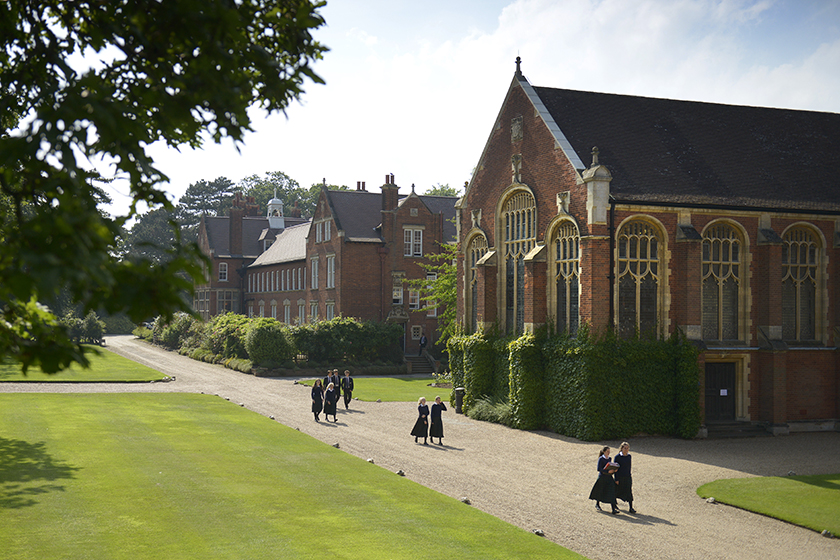
Making the learning leap: KS4 to KS5
By
6 years ago
Mark Seldon, Director of Studies at Gresham’s School, on tactics to make the jump easier


Finishing secondary education and heading into Sixth Form is an exciting, yet daunting prospect for most 16-year olds. Assuming they have already chosen by the summer what they will be studying at Sixth Form – whether that be A-levels or the International Baccalaureate (IB) Diploma – arriving at the summer holiday offers them time to not only re-charge their batteries, but to prepare and ensure that they start the next stage of their education with confidence and ready to seize every opportunity.
If they find the transition from Key Stage 4 to 5 unnerving, they won’t be the only one. Teachers understand that it takes some getting used to, and students will find that all courses have a built-in settling-in period. So, they can be reassured that they won’t be ‘dropped in at the deep end’ – but there will still be a lot of new aspects to school life for them to get used to.
Teaching style and workload
Students are likely to find themselves in smaller classes at Sixth Form, giving them more opportunity to contribute to group activities and discussions. Preparation for lessons can therefore be helpful – so it’s a good idea to read around their subjects before the start of term to refresh their memories, and to get them excited about new things to come; most schools will provide new Sixth Form students with a summer reading list.
In terms of timetables, the contrast between GCSEs and A Levels is more obvious than between GCSEs and the IB Diploma and so, depending on the student’s choice, their Sixth Form experience will be somewhat different. A Level students study fewer subjects than IB Diploma students, who take six subjects in total – three at higher level and three at standard level – alongside the IB Diploma ‘core’. A Level students, therefore, have less contact time with teachers and so a lighter timetable, while IB students have more contact hours and a busier weekly timetable.
Tailor your IB Diploma
IB Diploma students tend to spend around a third more time on their higher level subjects compared to their standard level, therefore they should make sure they choose to study the subjects they love most at higher level, and those they can’t bear to give up at standard level. It’s about following their passions.
Inevitably, some students (whether studying the IB or A Levels) will change their minds about future career aspirations and current subject choices after the start of the academic year. Do not panic! It may be that they can switch subjects, depending on how full each course is – so it is best for them to discuss their options with their school. The IB Diploma allows students to swap higher level elements of a programme to standard level and vice versa, so it is important that students consider in their first few weeks or months of Sixth Form whether they are enjoying their programme, and for parents to reassure them that they have options if not.
Be organised!
All Sixth Form students will be encouraged to take on more responsibility for their studies, therefore being organised is key. Within the IB Diploma, organisation is a skill that is developed through the programme’s long-term projects, for example the extended essay (part of the programme’s ‘core’), rather than being something that teachers simply expect students to be able to manage. Organisation is one of the attributes the IB most wishes students to learn, and practising this skill before starting Sixth Form will make it a lot easier when the time comes for students to manage their own workload from September.
Explore extra-curricular activities
The IB Diploma consists of more than just academic achievements. Under the IB Diploma ‘core’, students will undertake community, activity, and service (CAS) elements. CAS is an experiential learning component of the Diploma. Students complete a wide variety of extra-curricular activities, community services and athletic pursuits to fulfil this requirement – for example singing in the school choir, joining the Combined Cadet Force (CCF), and playing on the rugby team. Parents can encourage them to use the summer before Sixth Form to think about what could inspire them, or be incorporated into their CAS project next year. Many students credit their CAS experience as being one of the most rewarding parts of their entire school careers – so it’s worthwhile for them to get thinking about what they would like to do with plenty of time to plan ahead.
IB myths!
Students must not worry that they will find the IB Diploma too hard, or that it will take up too much time. Students have been successfully completing the programme for almost 50 years – and 10 years at Gresham’s School – and frequently say it’s the best thing they have ever done! Whilst it may be a demanding programme, it is also extremely rewarding. Students will have the full support of teachers and peers as well as a school’s IB co-ordinator, and so they mustn’t worry about finding it too hard – it is not.
Parents can help – don’t let students think that they might not be bright enough to study the IB Diploma. IB Diploma students have the luxury of being able to tailor their programme to their individual strengths and interests, through the higher and standard level subject options and the ‘core’. So don’t let the rumours put them off considering the IB Diploma. The best thing that teachers, parents and students can do to prepare for taking the leap from Key Stage 4 to 5 is to ensure that all options have been carefully considered.
READ MORE: Examining the Swedish idea of ‘lagom’



